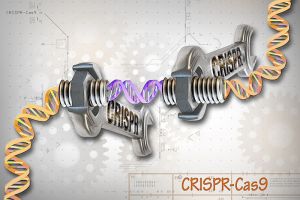Nota de prensa original en inglés:
European scientists unite to safeguard precision breeding for sustainable agriculture
Leading scientists representing more than 75 European plant and life sciences research centers and institutes have endorsed a position paper that urgently calls upon European policy makers to safeguard innovation in plant science and agriculture. The scientists are deeply concerned about a recent European Court of Justice ruling around modern genome editing techniques that could lead to a de facto ban of innovative crop breeding. As a result, European farmers might be deprived of a new generation of more climate resilient and more nutritious crop varieties that are urgently needed to respond to current ecological and societal challenges. Together with the countless statements of European research institutes that appeared online over the last months, this statement is proof of a solid consensus among the academic life science research community in Europe on the negative consequences of this ruling.
Crop improvement has been done for centuries by means of conventional plant breeding techniques, all leading to genetic changes in the plant. Today, innovative techniques represent a next step in plant breeding and allow to make the desired genetic changes with very high efficiency and precision.
Innovative plant breeding methods necessary to meet the challenges of climate change
Agriculture feeds the world. On that account, the breakdown of food systems is one of the biggest risks of climate change. Crops that are more tolerant to rapidly changing and harsher environments, such as the recent period of extreme drought in parts of Europe, will be crucial for the success of tomorrow’s food production approaches. One of the latest breakthroughs in this field is precision breeding, an innovative crop breeding method based on genome editing. Precision breeding can contribute to tailoring crops to a specific area, considering the environmental factors of a certain region. Precision breeding is also used to generate crops with improved nutritional composition, improved digestibility, lower content of anti-nutritional components, reduced allergenicity or requiring less input, which has a direct benefit for our environment.
European plant research institutes jointly call for action.
The implications of a very restrictive regulation of innovative plant breeding methods are far-reaching. European agricultural innovation based on precision breeding will come to a halt because of the high threshold that this EU legislation presents. This will hinder progress in sustainable agriculture and will give a competitive disadvantage to plant breeding industries in Europe. The impacts on our society and economy will be enormous.
To safeguard innovation in agriculture in Europe, the signatories of the position paper ask for a new regulatory framework that evaluates new crop varieties based on science.
Dirk Inzé, Scientific Director at VIB and one of the initiators of the position paper: “The support we received for this initiative from plant scientists all over Europe has been overwhelming from the start. To me, it clearly illustrates the current dichotomy in Europe: as European leaders in the field of plant sciences we are committed to bringing innovative and sustainable solutions to agriculture, but we are hindered by an outdated regulatory framework that is not in line with recent scientific evidence. With this mission statement we hope to promote evidence-informed policymaking in the EU, which is of crucial importance to us all".






